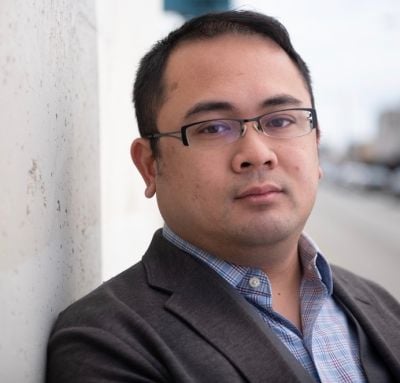Please let your friends know about this webinar
18 people have watched this webinar. Of those, 1 has contributed $3 so far. Our goal is $500.
Guaranteed income pilot programs continue emerging as a way to generate evidence to dispel racist tropes that politicians have used to withhold public assistance that would otherwise help the economy. How much evidence do we have and how much more do we need?
January 9, 2023
The guaranteed income receipts continue coming in, and they continue to tell a similar story of overwhelmingly positive impact for families and children. But as this collective body of evidence continues to grow, what exactly are some of the most powerful and relevant observations? Who still needs to be convinced and how are guaranteed income pilots and studies designed to dispel the most persistent myths about no-strings cash assistance?
In this conversation, we’ll go on a tour of guaranteed income findings so far, led by the co-directors of the Center for Guaranteed Income Research at UPenn. They’ve been working with more than two dozen cities and counting across the country to collect robust data on guaranteed income pilots. At the same time the expanded child tax credit during the pandemic also added to the evidence base for guaranteed income. But the racist political tropes maintain a powerful grip on many in Congress, the ultimate target for guaranteed income supporters. Will even researchers eventually tire of doing study after study showing positive results? Do we even need more studies by now?
This session is part of Next City’s Solutions of the Year, a multi-day virtual convening of seven sessions that will frame the conversation for 2023. Purchase a single ticket now to all of the events for just $50, or pay what you wish by registering for each event individually. Everyone who donates will receive a copy of our annual Solutions of the Year special issue magazine.

Moderator
Oscar Perry Abello, Senior Economic Justice Correspondent, Next City
Oscar Perry Abello covers policies, programs and businesses that seek to address historical disparities in access to jobs, capital and space for economic use in cities. He previously served as Next City’s editor from 2018-2019, and was a Next City Equitable Cities Fellow from 2015- 2016. Since 2011, Abello has covered community development finance, community banking, impact investing, equitable and inclusive economies, affordable housing, fair housing and more. He holds a bachelor’s in economics from Villanova University.

Speakers:
Stacia West is an Assistant Professor at the University of Tennessee College of Social Work
Stacia Martin-West is an Assistant Professor at the University of Tennessee College of Social Work. She is the co-PI of the Stockton Economic Empowerment Demonstration, the first modern city-led guaranteed income experiment in the US. Her research focuses on universal basic income, unconditional cash transfers, women’s poverty and wealth inequality, and the affordable housing crisis. She recently completed the first evaluation of unconditional cash transfers in the context of environmental and economic disaster.

Amy Castro, PhD, MSW is an Associate Professor at the University of Pennsylvania in the School of Social Policy & Practice and is the Co-Founder and faculty director of the Center for Guaranteed Income Research
Amy Castro, PhD, MSW is an Associate Professor at the University of Pennsylvania in the School of Social Policy & Practice and is the Co-Founder and faculty director of the Center for Guaranteed Income Research. Her work explores economic mobility, guaranteed income, innovation, and disparities in housing and lending. She served as the Co-PI of the Stockton Economic Empowerment Demonstration under former Mayor Michael Tubbs which, lead to a proliferation of experimentation with unconditional cash across the U.S. Dr. Castro is the Co-PI of 30 applied cash-transfer studies housed at CGIR where she currently advises more than 20 Mayoral teams, state, and county legislators on unconditional cash research. Her work on guaranteed income has been funded by the Robert Wood Johnson Foundation, the Hilton Foundation, the Monarch Foundation, the City of Los Angeles, LA County, the City of Newark, the Yellow Chair Foundation, the City of Oakland, the Social Impact Fund, and the Economic Security Project. Dr. Castro’s research is featured often in the popular press including the NY Times, the Washington Post, the Atlantic, the New Yorker, the Nation, the Economist, the LA Times, CNN, NBC, PBS, and National Public Radio.
Dr. Castro is also known for her work on women and risky lending during the foreclosure crisis. She was awarded the GADE research award, the Society for Social Work and Research Outstanding Dissertation Award, and the Nina Fortin Award for her work on the gender and racial contours of predatory lending. She was the 2017 recipient of the SP2 teaching award, was a Distinguished Visiting Professor at Penn’s School of Nursing (AY 19/20), is an affiliated faculty member of the Alice Paul Center and Gender, Sexuality, and Women’s Studies, and is a member of the LGBTQ faculty working group. Prior to her time at Penn, she spent more than a decade working with non-profits and community-based agencies in Philadelphia and New York City. Her research has been published by Social Service Review, The Gerontologist, Social Science & Medicine, Social Work, The American Journal of Public Health and JPAM. She earned a PhD in Social Welfare and a Master of Philosophy from the City University of New York, a Master of Social Work from the University of Pennsylvania, and a Bachelor of Social Work from Cairn University.

20th Anniversary Solutions of the Year magazine

August 10, 2022
_400_400_s_c1.png)
June 21, 2023

June 15, 2022

February 9, 2022